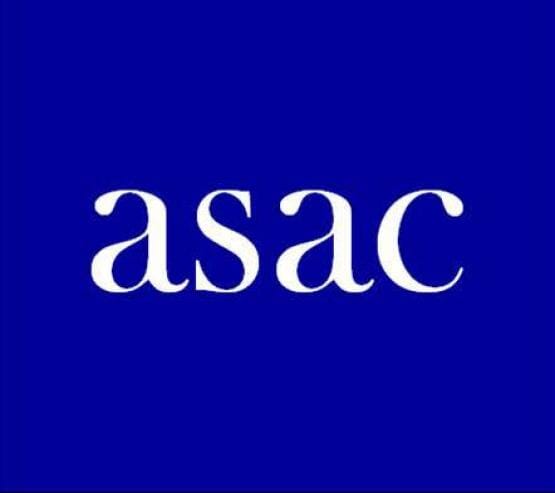The Area Substance Abuse Council (ASAC) provides prevention, intervention, and substance abuse treatment services for adults, adolescents, pregnant women, and women with children in self-paced, individualized programs. Our services include crisis sessions, assessments, intensive outpatient care, day treatment, residential treatment, halfway house, aftercare, and long-term transitional living programs.
ABOUT AREA SUBSTANCE ABUSE COUNCIL
The main campus of Area Substance Abuse Council (ASAC) in Cedar Rapids, Iowa provides residential, intensive outpatient (IOP) treatment, and an outpatient program (OP) for adults and adolescents struggling with substance abuse and co-occurring disorders. ASAC has been offering rehab services since 1962. Please note that medical detox services are not available on-site.
TREATMENT & ASSESSMENT
All clients first receive a substance abuse evaluation to determine the appropriate level of care. According to the facility’s website, in order to be accepted into residential treatment, individuals “must have a chronic substance abuse problem that has significantly affected other areas of his or her life.” Please be aware that there may be a waiting list for the adult residential Recovery Center program; until an opening occurs, outpatient services may be available to those living locally.
ASAC’s adult primary residential program offers an intensive curriculum structured around behavioral management, such as anger management and communication skills. Group sessions explore the core issues that lead to addiction, and weekly multi-family group sessions are also available. The treatment is self-paced and based on individual client needs. Organized recreational activities are included.
CD+ is a 12-step residential recovery program for clients ages 13 to 18. CD+ focuses on family, behavioral issues and interventions, and coping skills. Participants are monitored 24/7 and cannot leave the campus unsupervised. On-site tutors help clients complete schoolwork, earn college credit, or work toward their GEDs.
Following residential treatment, Halfway House is available for men or women who are homeless or do not have a home to which to return; the average stay is two to three months. Halfway House patients receive a minimum of five hours per week of substance abuse programming and attend Alcoholics Anonymous (AA)/Narcotics Anonymous (NA) support groups.
Clients also can continue receiving treatment through outpatient groups or individual therapy on the main campus or at one of ASAC’s satellite sites. The IOP consists of group, individual, and family therapy sessions for nine hours per week. A self-paced extended OP is also available.
STAFF CREDENTIALS
The treatment team includes substance abuse counselors, case managers, cooks, and therapists.
ACCOMMODATIONS & AMENITIES
There currently is no information provided on the ASAC website or otherwise regarding living arrangements for the adult residential program. However, a video tour of the CD+ youth facility shows straightforward rooms with multiple beds, as well as a common kitchen, dining area, rec room with flat-screen TV, games, and coin-operated laundry facilities.
WHAT ALUMNI SAY
Only one alumnus offered feedback to Best-rehabs.com to date. The anonymous reviewer who participated in the outpatient program gave the facility five out of five stars for treatment effectiveness and three stars for counseling. She reported that clients were treated well, but staff could have been stronger and overall, she thought it was okay.
On its Facebook page, which the facility may vet, ASAC received a four-star average rating based on 22 reviews to date. Fifteen were perfect five stars, many of which cited dedicated staff and long-term sobriety. Five-star reviewer Bryce wrote, “I just graduated from CD+ and I took a lot out of the program. Thank you to all the staff and counselors.” Sophie Jo, another five-star reviewer, commented “This place genuinely helped me.”
WHAT FRIENDS & FAMILY SAY
The six loved ones surveyed to date offered mixed feedback to Best-rehabs.com. Four would recommend the facility to others. They provided a 2.4 out of five-star average for holistic offerings and less than four out of five stars for counseling options, exercise, connectivity, and affordability.
Some noted a lack of adequate staffing and alternative therapies. However, Virginia, a parent, credited the facility with saving her son’s life. She told Best-rehabs.com: “My son almost died from his alcoholism. He had borderline Cirrhosis, was jaundiced, and bloated. He graduated from ASAC in 2009 and hasn’t had a drink since.”
WHAT STAFF SAY
Two staff members submitted mostly positive feedback about ASAC. They gave the facility perfect five stars for cleanliness, affordability, and counseling options. However, exercise and leisure, as well as holistic offerings were rated poorly.
FINANCING
According to ASAC’s website, the facility accepts Medicaid, Access to Recovery vouchers, some private health insurance, and self-payment.
